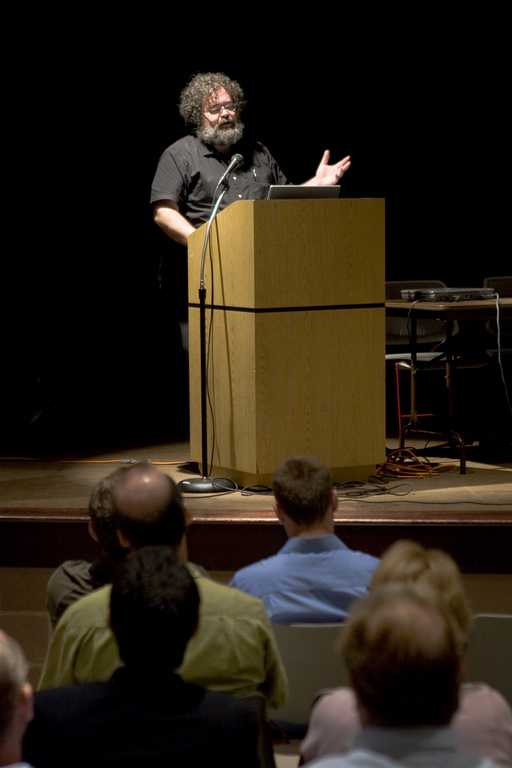As technology advances, independent filmmakers are finding that making a film is much less expensive and easier than in the past.
Filmmakers can rent video cameras for $200 to $1,200 per day. Video editing software, such as Apple Inc.’s Final Cut Pro, puts post-production in the hands of the filmmaker for about $1,300.
And widespread high-speed Internet access and online communities such as MySpace and Facebook are revolutionizing the way filmmakers can interact with and build an audience for their films, said David Tames, a filmmaker and media technology consultant based in Boston.
“It is now easier than ever, if you have a really compelling film, [to] create a lot of buzz, a lot of word of mouth,” said Tames, who gave the opening remarks at the Rhode Island International Film Festival’s Film Forum on Aug. 10.
Still, the most effective way to get a major production and distribution company, such as MGM or HBO, to “pick up” an independent film or documentary is through intense networking and/or painstaking promotional efforts.
Ursula Burton, for example, took a team of people on a year-and-a-half-long tour to promote her feature-length film, “Manna From Heaven,” before it was picked up by MGM/Sony. The tour involved traveling from city to city in a van painted like the poster of the movie.
They handed out fliers at hotels and talked to anyone they could about the film in order to get people to go to see it at the local movie theater. By the end of the tour they had showed the film in 40 theaters.
“The downside is that it was a year and a half of our lives and a lot of hard work,” said Burton, co-founder of the California-based Five Sisters Productions and an actress whose credits include the film “Divine Secrets of the Ya-Ya Sisterhood” and the TV show “The Office.”
George Marshall, founder and director of the festival, said he had brought back the Film Forum after an eight-year hiatus partly because he wanted to create more structure for the informal “Between Takes” talks that were conducted in years past.
“Filmmakers are interested in the nitty-gritty of filmmaking,” Marshall said. “Putting in structure makes it easier for people to adapt to it.”
But an even greater driver for reinstating the forum was the desire to introduce some of the 227 filmmakers who attended the festival this year to people such as Steven Feinberg, director of the R.I. Film and Television Office, who helps make productions happen in the state.
“It just made sense to me that we have these folks here,” Marshall said. “We should introduce them to what we have.”
The first day of the two-day forum included workshops such as “Why Rhode Island is Right for Your Film,” “Rhode Island Film & Television Tax Credit” and “Recently in Rhode Island.”
But local filmmakers already realize the value of the state’s film and TV office and the tax credits.
In the three years since the office was created, local filmmaker Raymond Lepre said he has noticed a more open attitude toward filmmaking in the state.
And though the state’s tax credits don’t affect him because the budgets for his films are less than the $300,000 minimum required to qualify for them, Lepre said, just the fact that legislators approved the credit “can’t do anything but help the industry as a whole.”
Asked what he thinks about Massachusetts’ plan to lower the threshold for its motion picture tax credits from $250,000 to $50,000, Lepre said it wouldn’t hurt him, because he could shoot in Massachusetts and take advantage of the tax credits that way.
But Marshall suggested that Rhode Island adopt a comparable tax credit incentive.
“We should match it,” he said. “The $50,000 [threshold] encourages a higher level of production.”
Marshall added that there are many specialty and niche markets for films and other commercial productions. He said the state could be taking advantage of an increase in film production for cable stations such as Oxygen, among others.
Marshall also said he thinks that Massachusetts, Connecticut and Rhode Island should be working together to market the region as a whole to the film industry, instead of having separate programs.
“It’s a regional market,” he said. “We should make this a region-wide initiative.” •
No posts to display
Sign in
Welcome! Log into your account
Forgot your password? Get help
Privacy Policy
Password recovery
Recover your password
A password will be e-mailed to you.













